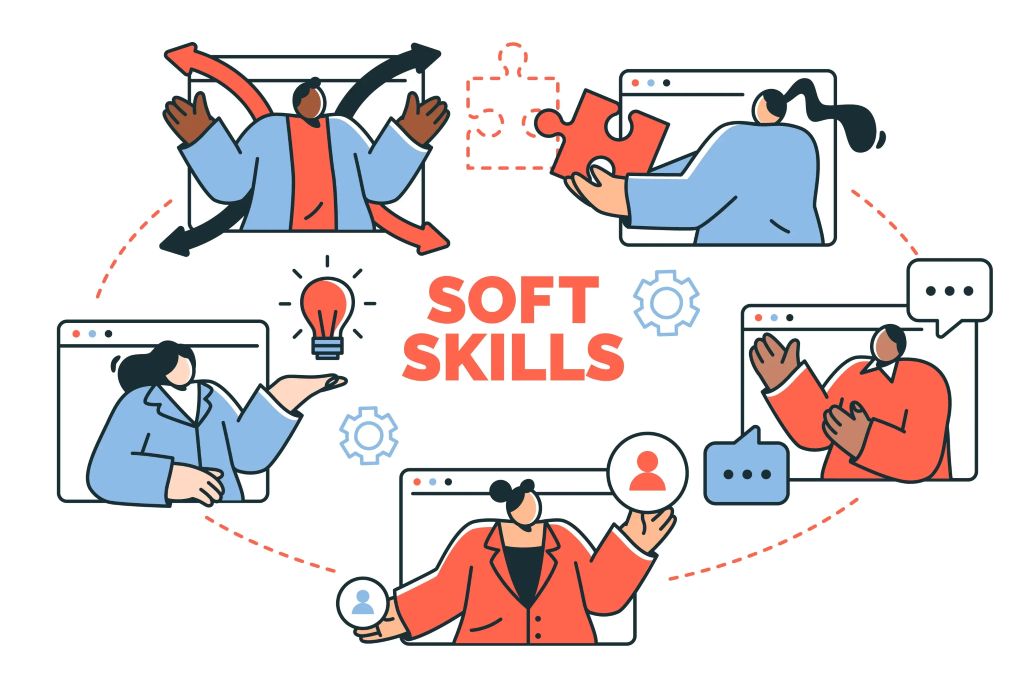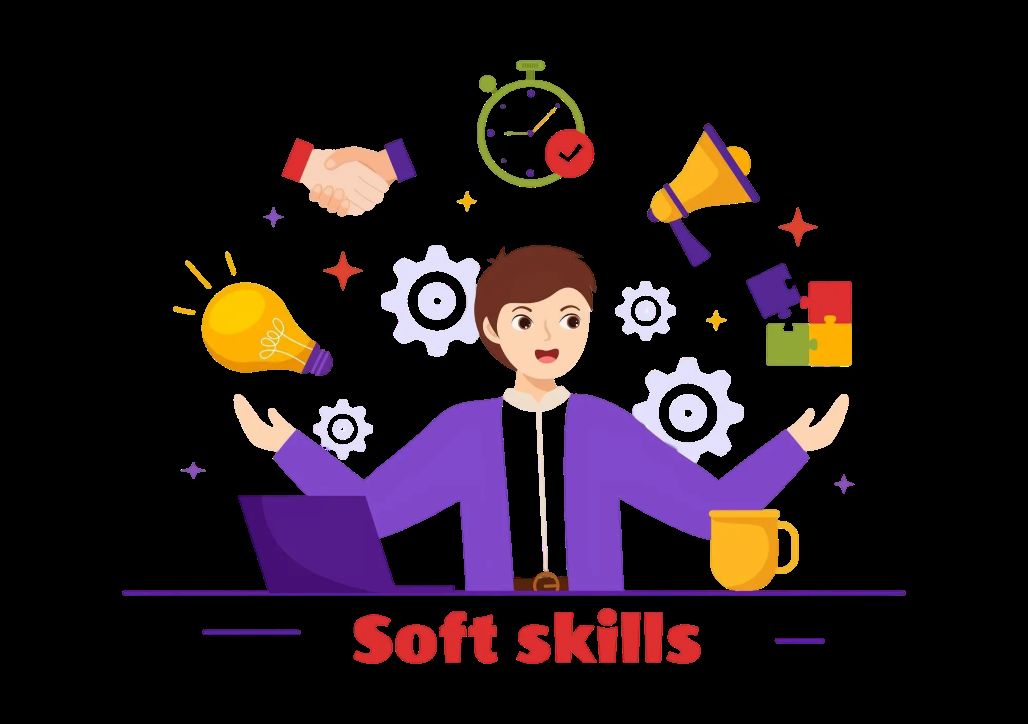In healthcare, clinical expertise saves lives, but it’s often the human connection that defines the patient experience. Soft skills in healthcare—what are soft skills in healthcare exactly? They include communication, empathy, teamwork, and adaptability, all of which transform routine care into compassionate healing.

Why Soft Skills Matter in Healthcare Training
Soft skills don’t develop overnight—they require deliberate practice, consistent reinforcement, and structured feedback. A robust LMS for healthcare organisations enables structured soft skill training for healthcare, turning common soft skills in healthcare with examples into measurable, ongoing outcomes. Unlike clinical knowledge that can be learned from textbooks, competencies such as empathy, communication, and leadership evolve through experience, reflection, and training. A robust LMS for healthcare organisations helps bring this structure into place by turning soft skill development into a measurable, ongoing process.
With a modern learning platform, training can be woven into daily routines rather than treated as one-off workshops. For instance, Calibr Content Hub centralizes all healthcare learning materials—communication guides, cultural sensitivity resources, scenario-based exercises—into a single repository. This ensures staff can revisit critical lessons anytime, strengthening skills through repetition and reinforcement.
At the same time, Calibr’s Real-time Analytics equips administrators with insights into learner progress. Instead of guessing whether soft skill programs are effective, organizations can directly link completion rates, engagement levels, and skill mastery to patient satisfaction scores, staff performance, and overall healthcare outcomes.
Research backs this up—training in soft skills directly impacts patient satisfaction and healthcare outcomes. For example, hospitals that invest strategically in employee training programs see a 19% increase in patient satisfaction scores (Gallup).
For healthcare, where patient trust and experience are critical, this measurable return on training makes soft skill investment not just valuable, but essential. Platforms like Calibr help organizations achieve this by delivering personalized learning, interactive content, and real-time insights that strengthen both compliance and patient care. Explore our website to learn more or contact us for details.
What Are Soft Skills in Healthcare?
Soft skills in healthcare are the non-technical abilities that enable professionals to interact effectively with patients, colleagues, and the broader healthcare environment. These include communication, empathy, teamwork, adaptability, and emotional intelligence. While clinical expertise ensures correct diagnosis and treatment, soft skills in healthcare build trust, improve patient satisfaction, and enhance collaboration across teams.
Top 10 Healthcare Soft Skills

1. Communication Skills in Healthcare
Clear, empathetic communication is the foundation of patient trust and safety. Healthcare professionals must explain diagnoses, treatment plans, and instructions in a way that is easy to understand, without overwhelming or confusing patients. Strong communication also means active listening—truly hearing a patient’s concerns, acknowledging their emotions, and responding appropriately.
Good communication skills reduce medical errors, improve adherence to treatment, and strengthen the bond between caregivers and patients. For teams, it ensures smoother coordination across doctors, nurses, and support staff.
Many platforms, including Calibr’s AI-Powered Course Authoring, enable healthcare organisations to build realistic, role-play style training modules. These simulations help staff practice communication skills in healthcare scenarios, preparing them for real-life interactions with patients and colleagues.
2. Empathy and Compassion
Empathy and compassion are critical soft skills healthcare professionals must master to deliver patient-centered care.Patients often come to healthcare providers during their most vulnerable moments—experiencing pain, fear, or uncertainty. Empathy and compassion bridge the gap between medical expertise and emotional support. An empathetic approach allows healthcare professionals to understand a patient’s perspective, making care more personalized and humane.
Compassion isn’t only about being kind; it directly influences patient satisfaction, trust, and even recovery rates. When patients feel understood and cared for, they are more likely to follow treatment recommendations and engage positively in their own healing process.
Platforms like Calibr offer healthcare staff training programs, helping caregivers manage stress while maintaining patient-centered care.
3. Emotional Intelligence
Emotional intelligence (EQ) is the ability to recognize, understand, and manage one’s own emotions while also being attuned to others’. In healthcare, high EQ helps professionals remain calm under stress, resolve conflicts effectively, and show sensitivity toward patients and colleagues alike.Developing medical soft skills like emotional intelligence helps healthcare workers manage stress and build better patient relationships
For instance, a nurse with strong emotional intelligence can comfort an anxious patient while managing their own stress from a hectic shift. Developing EQ also enhances teamwork, reduces burnout, and fosters resilience in high-pressure hospital environments.
4. Teamwork and Collaboration
Healthcare is rarely a solo effort. Every patient’s care involves coordination among doctors, nurses, technicians, and support staff. Effective teamwork ensures critical information is shared, errors are minimized, and patients receive seamless, well-rounded treatment and it is one of the common soft skills in healthcare with examples, enabling teams to coordinate care seamlessly
Strong collaboration requires respect, open communication, and trust between professionals. Teams that work well together not only improve patient outcomes but also create a healthier workplace culture.
With Calibr’s Collaborative Learning, healthcare organisations can simulate interdisciplinary teamwork scenarios. These exercises encourage peer-to-peer learning, strengthen relationships across roles, and build habits of effective collaboration.
5. Adaptability
Healthcare environments are fast-paced and unpredictable. Emergencies, sudden changes in patient conditions, new medical technologies, or shifts in healthcare policies can arise without warning. Adaptability is one of the most important soft skills in hospital settings, allowing staff to respond to emergencies and changes efficiently. Professionals who adapt quickly maintain composure, make effective decisions, and deliver consistent, high-quality care despite uncertainty.
Adaptability also means embracing innovation—whether it’s adopting telemedicine tools, using AI-driven diagnostics, or learning updated treatment protocols. Flexible professionals are better equipped to integrate new methods into their practice while ensuring patient safety and trust.
With Calibr’s Personalized Learning Paths, healthcare staff can continuously update their knowledge and skills, ensuring they remain adaptable to evolving clinical practices and industry standards.
6. Problem-Solving Skills
In healthcare, no two cases are the same. A single medical challenge may have multiple possible approaches, requiring professionals to think critically under pressure. Problem-solving is a vital component of skills in healthcare, helping professionals navigate complex patient scenarios. Effective problem-solving combines clinical expertise with logical reasoning, creativity, and sound judgment. It’s about weighing risks, considering patient needs, and choosing the safest and most effective solution.
With Calibr’s Gamification features, healthcare staff can practice real-world problem-solving scenarios through interactive challenges, points, and badges—making learning both engaging and practical.
7. Time Management
Time is one of the scarcest resources in healthcare. From managing patient rounds and handling administrative work to responding to emergencies, professionals juggle numerous responsibilities. Strong time management can be developed through targeted soft skill training for healthcare, ensuring staff can prioritize tasks effectively
Modern training platforms like Calibr Learn support time management by offering Microlearning modules. These short, focused lessons allow healthcare staff to balance learning with busy schedules, keeping their skills sharp without overwhelming their day-to-day responsibilities.
8. Cultural Competence
Healthcare professionals often treat patients from diverse cultural, linguistic, and social backgrounds. Being culturally competent means respecting these differences and adapting care approaches accordingly. It ensures patients feel valued, understood, and comfortable, which directly impacts trust and adherence to treatment. Thus, cultural competence is essential medical soft skills set, helping staff provide care that respects diverse backgrounds.
Calibr’s Multi-language Support plays a vital role here, enabling healthcare organisations to deliver inclusive staff training across global teams. This ensures cultural sensitivity is embedded in training, breaking barriers and building stronger patient relationships.
9. Conflict Resolution
Tensions can rise in high-pressure environments like hospitals—whether between colleagues, departments, or even with patients and families. Left unresolved, conflicts can damage teamwork, morale, and patient care quality. Conflict resolution skills equip healthcare workers to address issues calmly, listen to all sides, and find fair, professional solutions. It is among the key skills in healthcare, equipping staff to manage disagreements professionally and maintain team cohesion.
Through Calibr’s Collaborative Learning, staff can participate in scenario-based exercises that simulate real-life conflicts, helping them practice de-escalation and negotiation techniques in a safe learning environment.
10. Leadership
Leadership extends far beyond titles or management roles. Every healthcare professional—from a nurse leading a shift to a physician mentoring interns—must demonstrate leadership qualities. Effective leaders inspire trust, guide teams through challenges, and create an environment where collaboration and excellence thrive. Strong leadership also helps build resilience, ensuring healthcare teams remain motivated even during crises. Leadership development through soft skill training for healthcare strengthens critical skills in healthcare, empowering staff to guide teams and improve patient outcomes
Using Calibr’s Real-time Analytics, leaders can track team performance, identify skill gaps, and support continuous development—turning leadership into a structured, measurable strength across the organization.
Real-World Example
Consider a large healthcare organization struggling with frequent patient complaints about unclear post-discharge instructions. Patients often left confused, leading to poor adherence and higher readmission rates. To address this, the organization implemented Calibr Learn with targeted Microlearning modules designed around communication skills in healthcare.
Staff were introduced to short, scenario-based exercises—such as explaining discharge instructions to elderly patients or using simple language for families unfamiliar with medical terminology. These modules fit seamlessly into busy schedules, making training accessible without disrupting daily care responsibilities.
Within just six months, the impact was tangible: patient readmission rates dropped by 12%, and satisfaction scores improved significantly. Within just six months, the impact was tangible: patient readmission rates dropped by 12%, and staff confidence improved. This demonstrates how structured soft skills healthcare programs and common soft skills in healthcare with examples make measurable differences. This demonstrates how structured soft skills healthcare programs and common soft skills in healthcare with examples make measurable differences.”
The Future of Soft Skills in Healthcare
As healthcare rapidly adopts technologies like AI diagnostics, robotic surgery, and telemedicine, the role of human interaction becomes even more vital. Technology may enhance efficiency, but it cannot replicate empathy, compassion, or trust. Patients want to know they are heard, understood, and cared for—qualities only soft skills can deliver.
“Future-ready healthcare organizations must balance technical innovation with human-centered care. Platforms like Calibr Learn nurture LMS healthcare skills and integrate soft skill training for healthcare, ensuring professionals master what soft skills in healthcare are essential for trust, empathy, and leadership. With features like Personalized Learning Paths and Collaborative Learning, healthcare staff can keep developing emotional intelligence, adaptability, and leadership—skills that will remain timeless even as medical technologies evolve.
What are soft skills in healthcare if not the foundation for trust, empathy, and leadership? By integrating soft skill training for healthcare into daily workflows, organizations develop professionals who are both technically skilled and emotionally intelligent.”
To strengthen your workforce’s skills in healthcare, explore how Calibr’s Employee Training solutions can support long-term growth, creating professionals who are as empathetic as they are skilled.
Conclusion
In healthcare, technical expertise may treat illness, but soft skills heal people. Clear communication, empathy, adaptability, and leadership form the backbone of quality care and teamwork. For hospitals and healthcare organisations, investing in employee training for soft skills is no longer optional—it is a responsibility to patients, staff, and the community at large.
With intelligent platforms like Calibr Learn and Calibr Content Hub, organisations can seamlessly integrate soft skill training into daily workflows. This ensures a workforce that is not only technically competent but also emotionally intelligent, collaborative, and resilient.
Ready to build a future-ready healthcare team?
Discover how Calibr’s Healthcare Training Solutions can transform soft skill development across your organisation and set new standards for patient care by contacting us today or scheduling a demo to get started.


